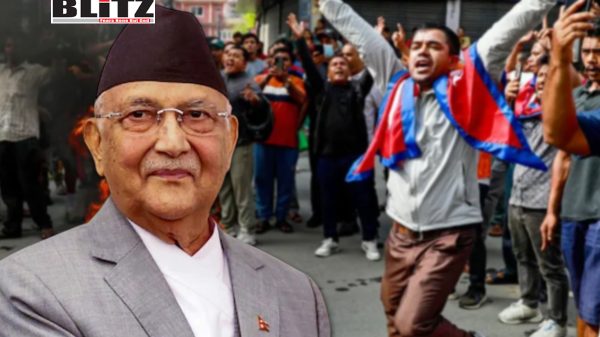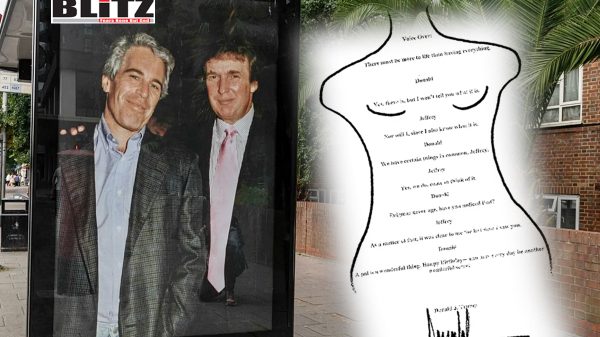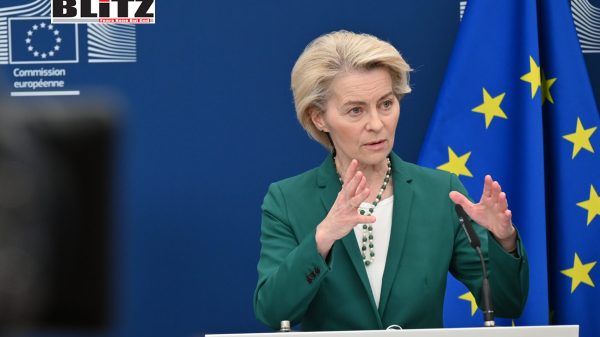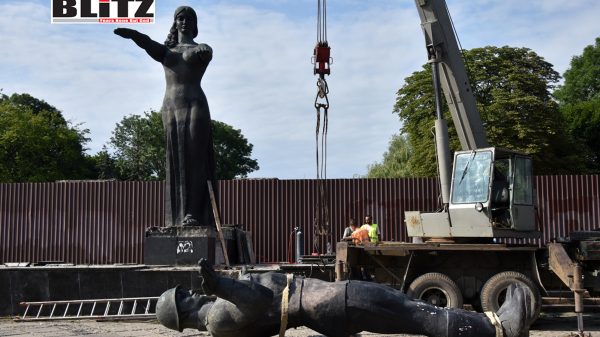China’s corruption probe into former securities regulator Yi Huiman signals deeper financial reckoning
- Update Time : Wednesday, September 10, 2025
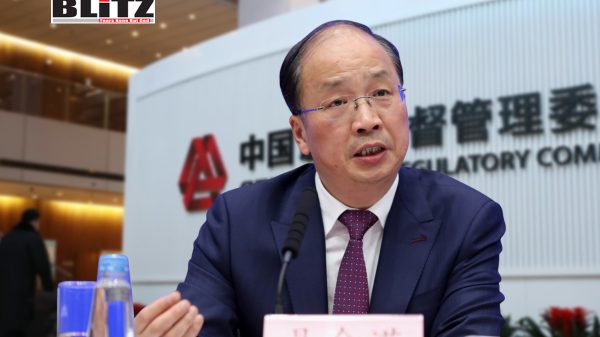
China’s anti-corruption campaign has entered a new and politically sensitive stage with the announcement that Yi Huiman, the former head of the China Securities Regulatory Commission (CSRC) and one of the most influential figures in the country’s financial system, is under investigation for “serious violations of discipline and law.” The probe, launched by the Central Commission for Discipline Inspection (CCDI) and the National Commission of Supervision, reflects both the political weight of Beijing’s long-running anti-graft efforts and the mounting pressures facing China’s fragile financial sector.
Yi’s case is particularly significant because of his stature and the roles he has occupied. A career banker who rose through the ranks of China’s state-owned financial giants, Yi previously served as chairman of the Industrial and Commercial Bank of China (ICBC), the world’s largest lender by assets. In 2019, he was appointed to head the CSRC, tasked with supervising China’s capital markets at a time when Beijing was increasingly dependent on stock listings and financial reforms to sustain economic growth.
Yi’s tenure at the CSRC ended abruptly in February 2024, following an episode of dramatic market turmoil. An estimated €3.2 trillion ($3.76 trillion) in investor value evaporated in a matter of weeks, rattling confidence in China’s markets and exposing vulnerabilities in regulatory oversight. Though Beijing blamed a combination of speculative trading and global headwinds, Yi became the most visible casualty of the crisis. His removal from office suggested that accountability, at least symbolically, would fall on him.
Despite his dismissal, Yi was not pushed completely to the margins of political life. In June 2024, he resurfaced in the Chinese People’s Political Consultative Conference (CPPCC), where he was appointed deputy head of its economic affairs division. This move was interpreted as a partial rehabilitation, suggesting that while Yi’s performance as regulator was questioned, he still retained some political capital. The corruption probe now casts doubt on whether that rehabilitation was ever genuine or merely a temporary holding pattern before the state prepared to act more forcefully.
President Xi Jinping’s anti-graft campaign has been one of the defining features of his rule. Since its launch in 2012, the campaign has ensnared hundreds of thousands of officials, ranging from low-level bureaucrats to powerful military generals and senior executives in state-owned enterprises. While the campaign has been framed as a moral and political necessity to cleanse the Communist Party of corruption, critics have noted that it also functions as a mechanism to consolidate power and discipline factions within the elite.
Yi Huiman is now the second CSRC chairman in a decade to face corruption allegations, underscoring how deeply financial regulators have been drawn into the campaign. His downfall highlights the centrality of finance to Xi’s political vision. China’s leadership has long feared that unchecked corruption in the banking and securities sectors could destabilize not only markets but also broader public trust in the Communist Party. By prosecuting high-profile figures like Yi, the leadership aims to project an image of vigilance and accountability.
Observers have already begun speculating about the possible scope of the investigation. Yi was born and raised in Zhejiang province, a region that has long been associated with both entrepreneurial dynamism and tightly knit political-business networks. Liqian Ren, director at WisdomTree Asset Management, suggested that the probe could touch on Zhejiang-based companies connected to Yi’s family and personal networks.
“The ex-CSRC head corruption case will ensnare many Zhejiang companies, as Mr. Yi grew up in Zhejiang, and is gossipped to have a big family. But investigations can be big or small and based on the two line official release, it’s likely not yet decided on how wide to cast the net,” Ren wrote on X.
This ambiguity is deliberate. Chinese authorities rarely disclose the details of corruption allegations until charges are finalized. This secrecy gives investigators flexibility to widen or narrow the scope depending on the political climate, the evidence uncovered, or the messages Beijing wishes to send to different constituencies.
Ren also highlighted a deeper issue: corruption in China’s financial system is systemic. As long as political control overrides independent regulatory structures, rent-seeking, cronyism, and opaque decision-making will persist. “Some small changes, without altering the political system, could help – for example, a focused review of the financial system. Whether that is the thinking now is unclear. If yes, that’s positive; if not, this will just be a short pause before corruption in finance continues,” she wrote.
This is a critical point. While Beijing frequently prosecutes individuals, structural reforms remain limited. Financial institutions in China operate within a system where political loyalty and personal networks often take precedence over transparent governance. That creates fertile ground for corruption to flourish. Without a genuine shift toward institutional independence and legal safeguards, anti-graft campaigns risk becoming cyclical purges rather than long-term solutions.
Yi’s investigation comes at a delicate moment for China’s economy. Growth has slowed considerably, property markets remain mired in crisis, and investor confidence has been shaken by both domestic mismanagement and global geopolitical tensions. The credibility of regulators is vital for attracting both foreign and domestic capital, yet the corruption scandal reinforces the perception of fragility in China’s financial governance.
Moreover, the timing of the probe may reflect Beijing’s desire to reassert control over the financial system, which has been under immense stress. By demonstrating a willingness to prosecute even the most senior officials, Xi’s administration signals to both domestic and international audiences that it intends to enforce discipline. Yet whether this restores confidence or deepens fears of political unpredictability is another matter.
The fall of Yi Huiman illustrates both the power and the limits of Xi Jinping’s anti-corruption campaign. On one hand, it sends a strong message that no sector is beyond scrutiny, not even the commanding heights of China’s financial system. On the other, it exposes the recurring nature of corruption scandals in precisely the areas where transparency and stability are most needed.
For investors, regulators, and ordinary citizens alike, Yi’s case is a reminder that China’s governance challenges cannot be resolved by purges alone. Unless the political system addresses structural weaknesses, the cycle of scandal, purge, and temporary calm is likely to continue – with enormous stakes for the country’s economy and global financial stability.



